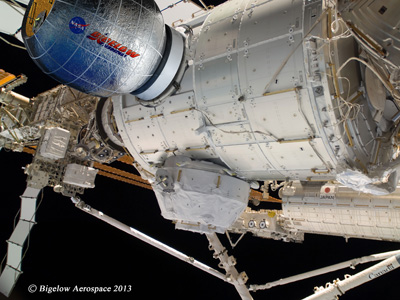
Breaking News
 Outrage Erupts as Released MS-13 Gang Member Kilmar Abrego Garcia...
Outrage Erupts as Released MS-13 Gang Member Kilmar Abrego Garcia...
 The backbone of U.S. capital markets just got the green light to move $100 trillion onchain
The backbone of U.S. capital markets just got the green light to move $100 trillion onchain
 SILVER IS ENTERING A "GENERATIONAL" SQUEEZE.
SILVER IS ENTERING A "GENERATIONAL" SQUEEZE.
Top Tech News
 EngineAI T800: Born to Disrupt! #EngineAI #robotics #newtechnology #newproduct
EngineAI T800: Born to Disrupt! #EngineAI #robotics #newtechnology #newproduct
 This Silicon Anode Breakthrough Could Mark A Turning Point For EV Batteries [Update]
This Silicon Anode Breakthrough Could Mark A Turning Point For EV Batteries [Update]
 Travel gadget promises to dry and iron your clothes – totally hands-free
Travel gadget promises to dry and iron your clothes – totally hands-free
 Perfect Aircrete, Kitchen Ingredients.
Perfect Aircrete, Kitchen Ingredients.
 Futuristic pixel-raising display lets you feel what's onscreen
Futuristic pixel-raising display lets you feel what's onscreen
 Cutting-Edge Facility Generates Pure Water and Hydrogen Fuel from Seawater for Mere Pennies
Cutting-Edge Facility Generates Pure Water and Hydrogen Fuel from Seawater for Mere Pennies
 This tiny dev board is packed with features for ambitious makers
This tiny dev board is packed with features for ambitious makers
 Scientists Discover Gel to Regrow Tooth Enamel
Scientists Discover Gel to Regrow Tooth Enamel
 Vitamin C and Dandelion Root Killing Cancer Cells -- as Former CDC Director Calls for COVID-19...
Vitamin C and Dandelion Root Killing Cancer Cells -- as Former CDC Director Calls for COVID-19...
 Galactic Brain: US firm plans space-based data centers, power grid to challenge China
Galactic Brain: US firm plans space-based data centers, power grid to challenge China
INFLATABLE ADDITION TO THE SPACE STATION WILL LAUNCH IN APRIL

BIGELOW AEROSPACE IS SENDING UP AN EXPANSION PACK FOR THE ISS
The first astronauts on Mars probably won't live in a tin can like the International Space Station. Big, heavy structures are expensive to launch, and aren't great at protecting against the radiation they'd be pummeled with on Mars. Instead, the first Martians might live in something like a pop-up tent.
Bigelow Aerospace designs inflatable space habitats--lightweight modules that ride compacted in the trunk of a spacecraft, then expand to a much larger size in space. In a launch scheduled for April 8, the company is sending one of its modules up to the International Space Station for testing.

 This is not a bubble.
This is not a bubble.


